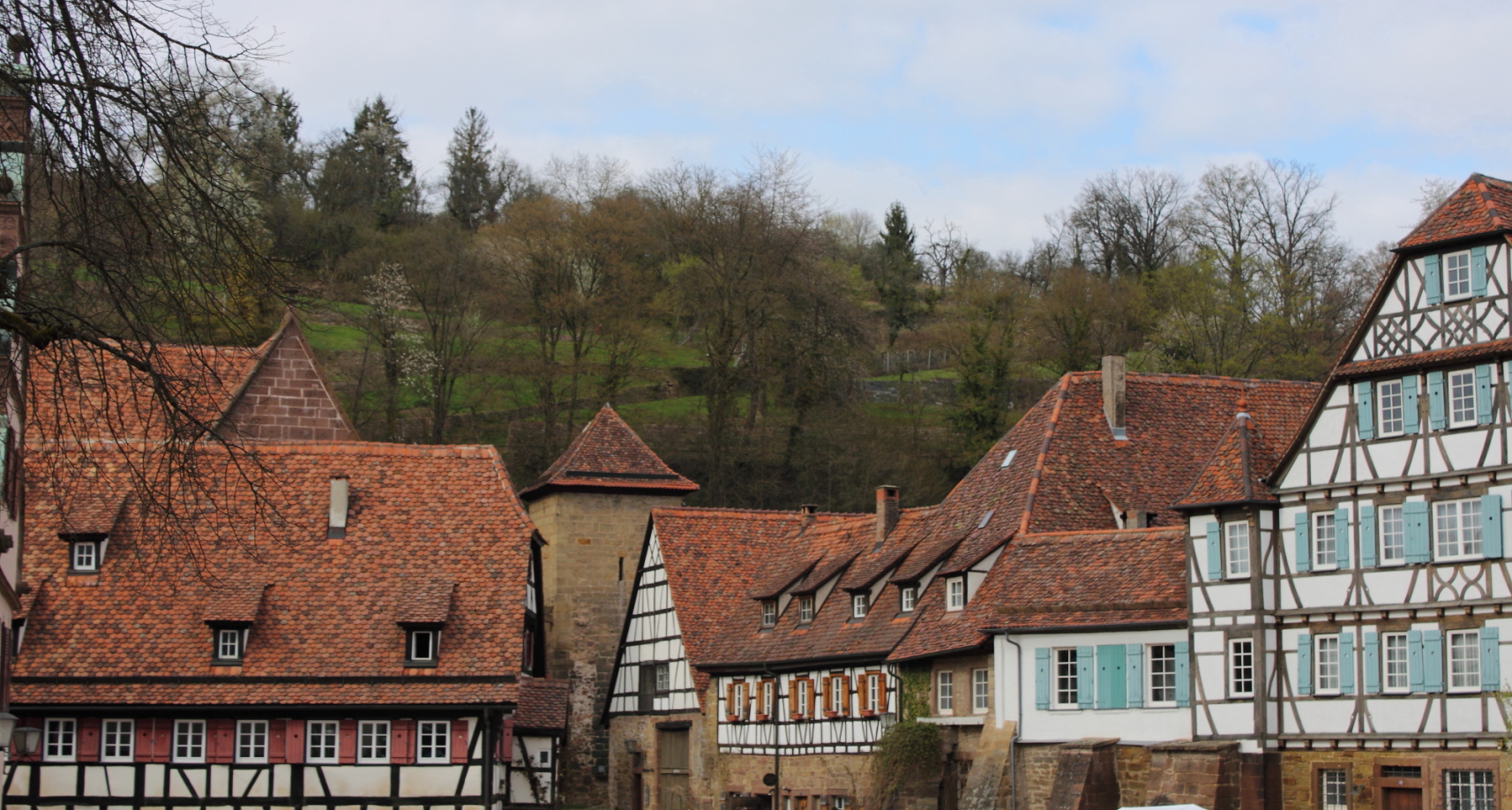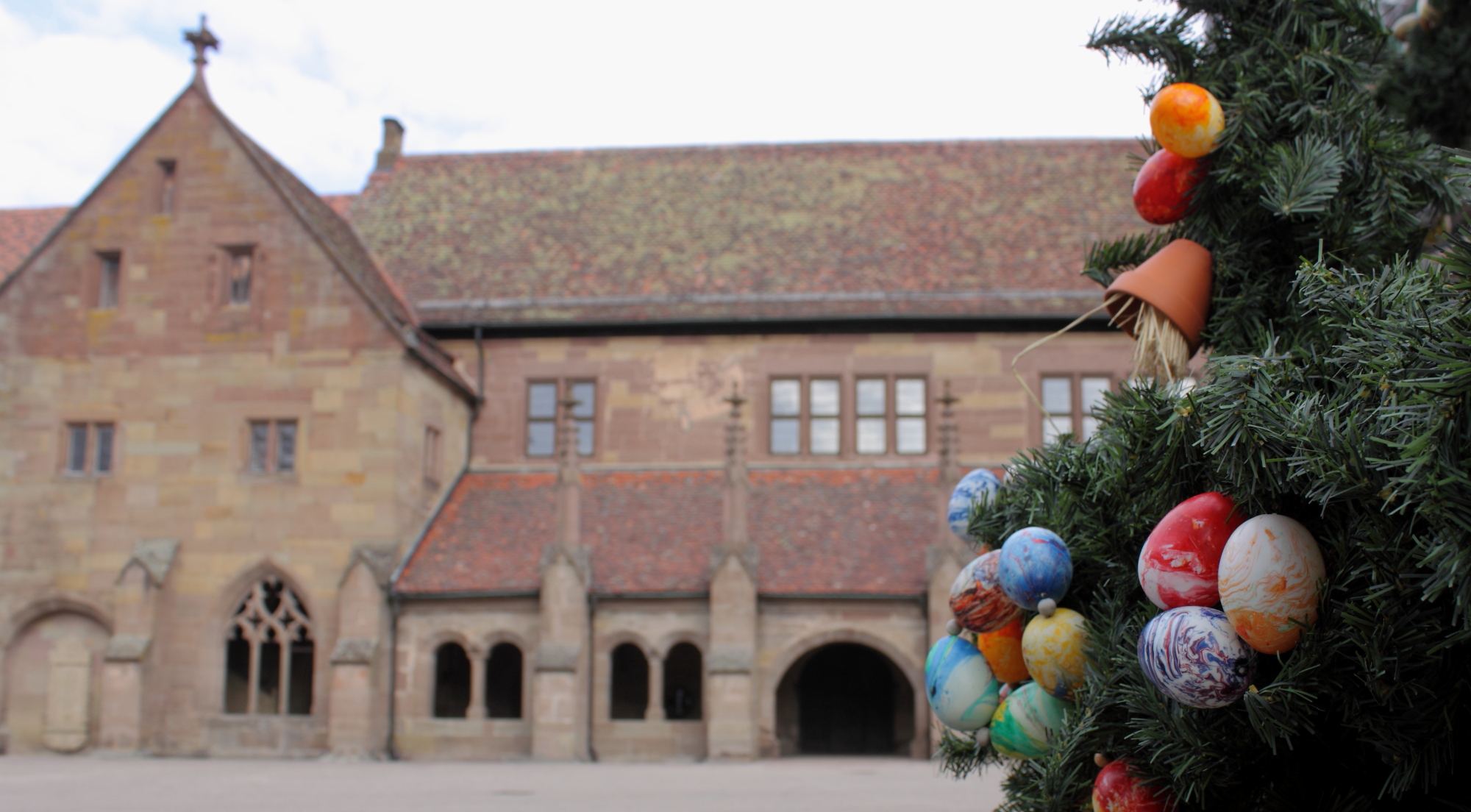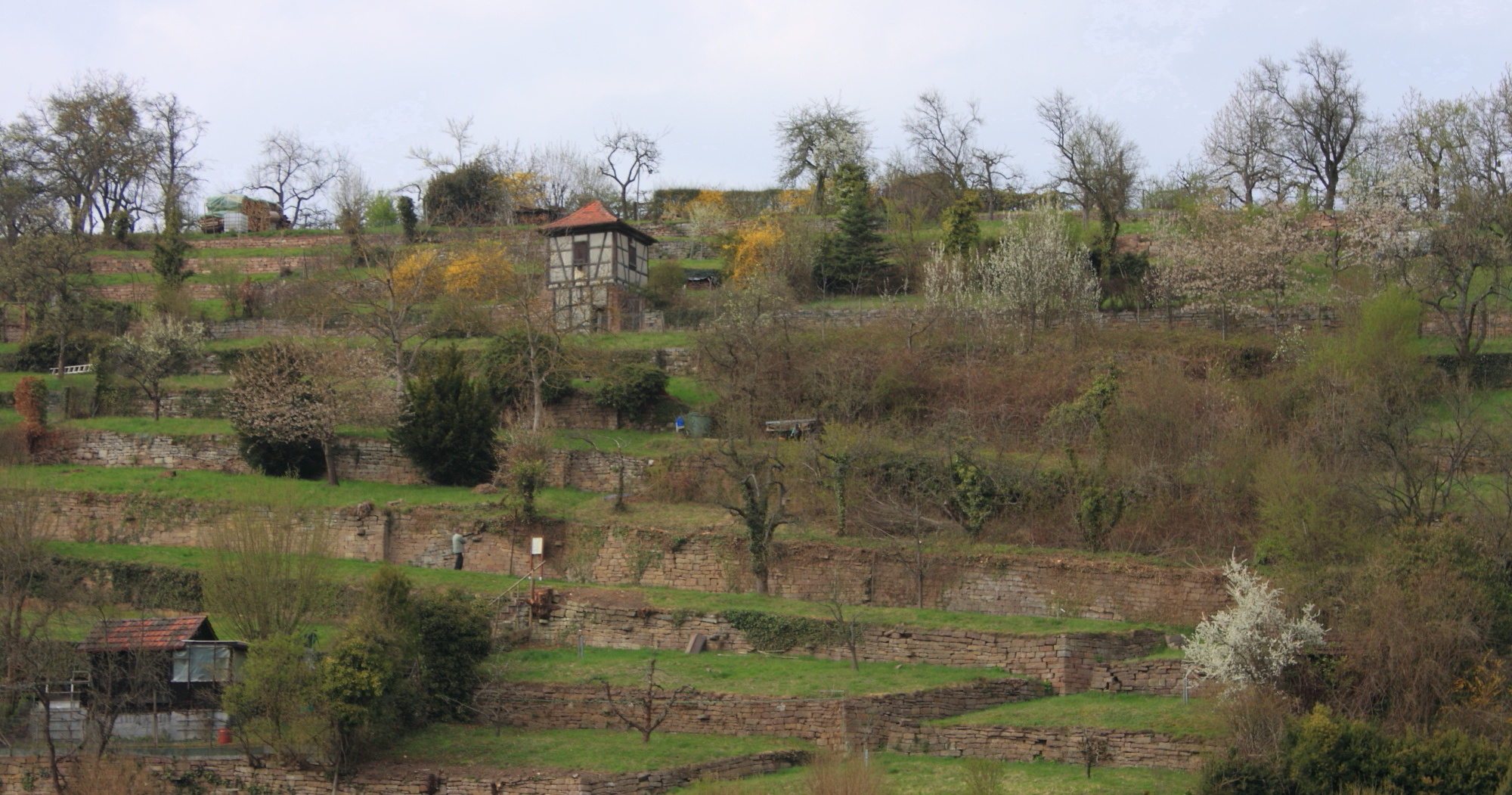Herzog von Württemberg, Maulbronner Eilfingerberg, Riesling Kabinett trocken, 2011
Our regular readers (is there any other kind?) know that we have a special fondness for wines that come with a bit of history. Today, I would like to take you with me, if you'll come, to the vineyards of the former Cistercian abbey of Maulbronn, some 50 kilometers north-east of Stuttgart. For their monasteries, the monks of the Cisterican order sought out places of utter solitude, far from any previous settlement. At least this was the theory since the 12th century. While that was mostly technically true, remote land doesn't mean bad land. In fact, the Cistercians were more like agricultural property developers, with an canny sense of where the most fertile new land could be found, and with an unrivalled grasp of the technology and organisation to remake it and reap its riches.

Among other clever things, they pioneered grape varieties and wine growing techniques exported out of Burgundy in much of the German-speaking lands.
But in 1537, just when the Maulbronn monastery and the surrounding farmland had been perfected into a kind of model plant, neatly laid out and humming (woods, fish ponds, orchards, farming, wine), the reformation put an end to such monkish affluence and sent the fathers packing.

The duke of Württemberg, new owner of the abbey courtesy of Martin Luther et al., was no puritan bigot or looting robber baron, however, but a shrewd administrator. Instead of pulling the monastery apart or selling it off, he and his successors kept intact its buildings and landholdings and - turned it to even more profitable use. And in a way, they still do: Through sea changes and revolutions, the house of Württemberg, former dukes, former kings, now - among other things - winery owners, have held on to some of their best vineyards in the region. And as every lover of German wine knows, there is nothing that says "German" like a nice princely coat of arms on a wine label. Case in point: The 2011 dry Riesling from Maulbronn's Eilfingerberg vineyard.

But, you'll be relieved to hear, neither all this history, nor the ringingly aristocratic name of its producer, can make the Wine Rambler like a wine that's not up to scratch:
And, I'm very sorry to report, there is much that's not to like: From the pale greenish straw colour, right on to the soapy, slightly sweaty artificial apple and yoghurt smell. This smell like nothing so much as an indifferently made Müller-Thurgau. I'm not even sure that it just smells like one, because there may be some of it in there legally - by law, only 85% of a bottle of German Riesling need to be Riesling. I'm just saying. There is precious little fruit on the palate, skins of apples and peaches, sawdust, all of it mushy and unclear. A somewhat harsh, watery and unlovely wine.

I have no reason to rubbish this wine, as I love the area, had bought it close to where it was made (this always endears a bottle to me) and had really looked forward to it. I'm sorry it sucked so badly. But if two wine-loving people simply cannot bring themselves to raise another glass to their lips and instead, after very brief discussion, decide to pour it down the sink, something is not right. If I may, your lordship: These vineyards look very nice, good exposition, well cared for. You have a good name and a pricing structure in place that seems to me to allow for investment into quality winemaking. What went wrong here? High yields may have been an issue: Riesling is routinely overcropped in Germany (a dirty secret, yes), because as a grape, it lets you get away with some of that without, mostly, a great loss of quality. The mushy fruit and the harshness suggest problems with ripeness and with lack of grape selection. But no matter: You've owned the place for 500 years now, get a grip and put it back on the German wine map, man.
